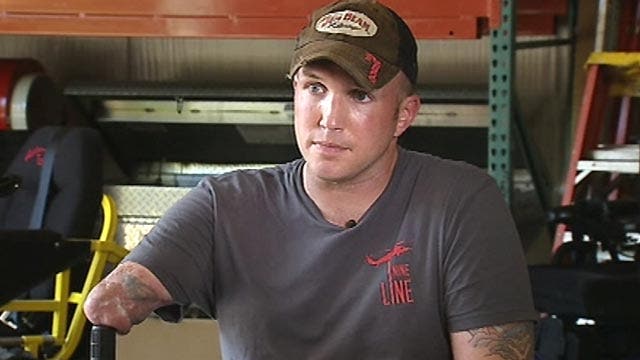I was only 5-years-old, but I remember well the cold, dreary Sunday, December 7 in 1941, when our family gathered around my Granddaddy’s big floor model radio to listen to the news that the Japanese Imperial Air Force had attacked the United States naval facilities in Pearl Harbor.
That's the day the world changed for me, never to be the same in my life. The Second World War become very real to those of us in coastal North Carolina, where ships leaving my seaport hometown of Wilmington were sunk by German U-boats just miles off our coast, prompting a very real fear that the Nazis would try to bring the war on shore.
I learned very early in my life that only two things protect our nation: the grace of Almighty God and the United States military.
[pullquote]
That’s the way it was then, the way it is now and the way it will always be, as long as America is a free and sovereign nation. And I feel we owe an unpayable debt of gratitude to those who stand between us and our enemies.
Being exposed to the horrors of war creates unique problems for those who experience it up close. The needs of our returning veterans are many and diverse – life-changing injuries, deep-seated mental difficulties, damaged marriages and a myriad of other challenges that few of us who have not been there can begin to understand.
One day young men and women are dodging bullets and IEDs in the desert, and a couple of days later they're walking through the airport in Dallas among a hurrying crowd of travelers who have no idea what it's like to live in constant danger or see a buddy die.
How alone they must feel, how insignificant our bustling around must seem to them, how shallow our priorities, how indifferent our attitudes.
Sometimes we make the mistaken assumption that the men and women who serve in our military have an extra gene or some internal mechanism that staves off loneliness and enables them to be away from their families for months on end without experiencing the pain of separation the rest of us feel.
The truth is that they miss their families and loved ones just as badly as any civilian – or, given the circumstances of the desolate places they serve in, even worse. It’s actually courage and devotion to duty that enable them to weather their long deployments.
When we think about the care and welfare of our veterans, we tend to believe government programs have it all covered. But government programs are just another name for bureaucracies, often operated by insensitive bean counters, tight-fisted administrators and, as we've seen recently, downright crooks.
In my opinion, it is the duty of us, the private American citizens, to take up the slack, fill in the blank spaces and make sure our returning vets have the medical care, education, counseling and opportunities they so desperately need to jump-start an interrupted life.
Many good and dedicated service organizations have come along in the last few years, and they do a wonderful job of helping our vets readjust and re-acclimate. They would appreciate any support caring Americans can provide.
Tonight when you go home, look at your family and know they can go to bed and sleep in safety and wake up tomorrow in the freest nation on the planet.
Thanks to the grace of Almighty God and the United States military.
God, please bless America.









































